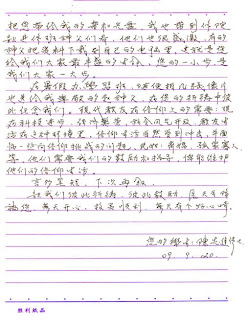It is festival time in China. October 1st  was the anniversary of the founding of the People's Republic of China in 1949 and celebrated as China’s National Holiday. And this year, the 60th Anniversary is being greeted as if it was the most grandiose affair of the century.
was the anniversary of the founding of the People's Republic of China in 1949 and celebrated as China’s National Holiday. And this year, the 60th Anniversary is being greeted as if it was the most grandiose affair of the century.
The National Day Parade
 was the anniversary of the founding of the People's Republic of China in 1949 and celebrated as China’s National Holiday. And this year, the 60th Anniversary is being greeted as if it was the most grandiose affair of the century.
was the anniversary of the founding of the People's Republic of China in 1949 and celebrated as China’s National Holiday. And this year, the 60th Anniversary is being greeted as if it was the most grandiose affair of the century.The National Day Parade

The National Day Parade was designated by CPPCC as an important component of the grand ceremony for the founding of P.R.C. From 1949 to 1959, 11 national parades were held on October first, though no national parades were held for the next 24 years. It was not until 1984 that the national parade was resumed by the then Central People's Government at the urging of Comrade Deng Xiaoping on the thirty-fifth National Day of the P.R.C. Since that time, when the anniversary is a multiple of five (e.g. the 50th, 55th, or 60th), large scale state functions may be held such as the inspection of troops in Tiananmen Square. Therefore, there will be a Grand National Day Parade in 2009 for celebrating the 60th anniversary of the funding of P.R.C.
Fireworks Show
Fireworks Show

Fireworks displays are usually held nationwide in all cities during China's National Day, one of the grandest and most famous being The Hong Kong National Day Fireworks Display held since 1997 in Victoria Harbor. During China's National Day, red lanterns are seen everywhere, especially hanging at the gates of government office buildings as well as all kinds of stores and shops. The red lantern is a symbol of festivity, luck and happiness.
HONG KONG and MACAU Bishops attend Beijing national day celebrations
HONG KONG and MACAU Bishops attend Beijing national day celebrations


Bishop Joseph Lai & Bishop John Tong Hon
Bishop John Tong Hon of Hong Kong and Bishop Joseph Lai of Macau have been invited to the Chinese national day celebrations in Beijing, on 1 October 2009.
Bishop John Tong Hon of Hong Kong and Bishop Joseph Lai of Macau have been invited to the Chinese national day celebrations in Beijing, on 1 October 2009.
Bishop John Tong Hon Speaking to UCA News recently, said he hopes the Chinese authorities would start to trust the Church and religion in general. Just as in the past, he called for greater religious freedom and released of the jailed clergy, and said he hopes the Chinese authorities could do more to close the rich-poor gap in the country. He joined 200 dignitaries from Hong Kong who have arrived in Beijing to attend the 60th National Day of the People's Republic of China (PRC) celebrations from Sept. 30-Oct. 2.
Click the following link to read more on the 60th National Day Celebrations of the People's Republic of China: http://www.chinadaily.com.cn/60th/index.html
Click the following link to read more on the 60th National Day Celebrations of the People's Republic of China: http://www.chinadaily.com.cn/60th/index.html

















